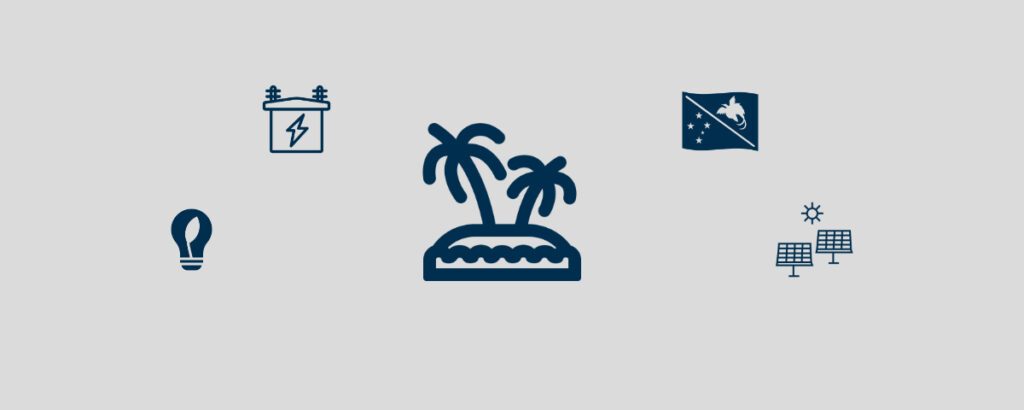Feasibility Study on Sustainable Energy for Buka Island – Papua New Guinea

Project description
In this project, a consortium led by RLI is investigating how the island of Buka in Papua New Guinea can be converted to hybrid energy solutions using photovoltaic systems. The client is the United Nations Office for Project Services (UNOPS). The objective is to conduct a feasibility study for a mini-grid for Buka and identify practical measures to improve the energy supply. A particular focus is to minimize the use of diesel fuel and replace it with renewable energy, e.g. from PV systems. The study includes an evaluation of the optimal technology mix considering this aspect.
Consultancy consortium and tasks
RLI will act as project manager and main contact for the client and will perform the modeling of the electricity demand, as well as an analysis of the natural and climate hazards. The project partner, Astra Solar, will be on the ground in Buka representing the consortium as a local consultant, conducting data collection and providing technical expertise. Supervising the field work in Papua New Guinea and preparing the environmental and social management plan will be the partner company Village Infrastructure Angels (VIA). Lastly, technical and financial calculations for system design must be provided. This is the task of the leading mini-grid company INENSUS.
The existing power grid of Buka Island
The national power company PPL is responsible for the generation, transmission and distribution of electricity in Buka City. Its existing diesel power plant is located in Kubu near the city limits, one kilometer northeast of the Buka airport. A recent survey showed that there is sufficient land at this airport to install a photovoltaic system. The power plant currently has five generators and one rental unit. However, of the five PPL generators, only one is in operation and others are rented. The situation is currently not optimally solved and the feasibility study of the RLI led consulting consortium is intended to remedy the situation.
Project duration: January 2023 – June 2023
Tasks
- Project management and communication with customers and partners
- Preparation of a quantitative electricity demand survey
- Modeling of electricity demand along connection and demand growth scenarios
- Analysis of natural and climate hazards




